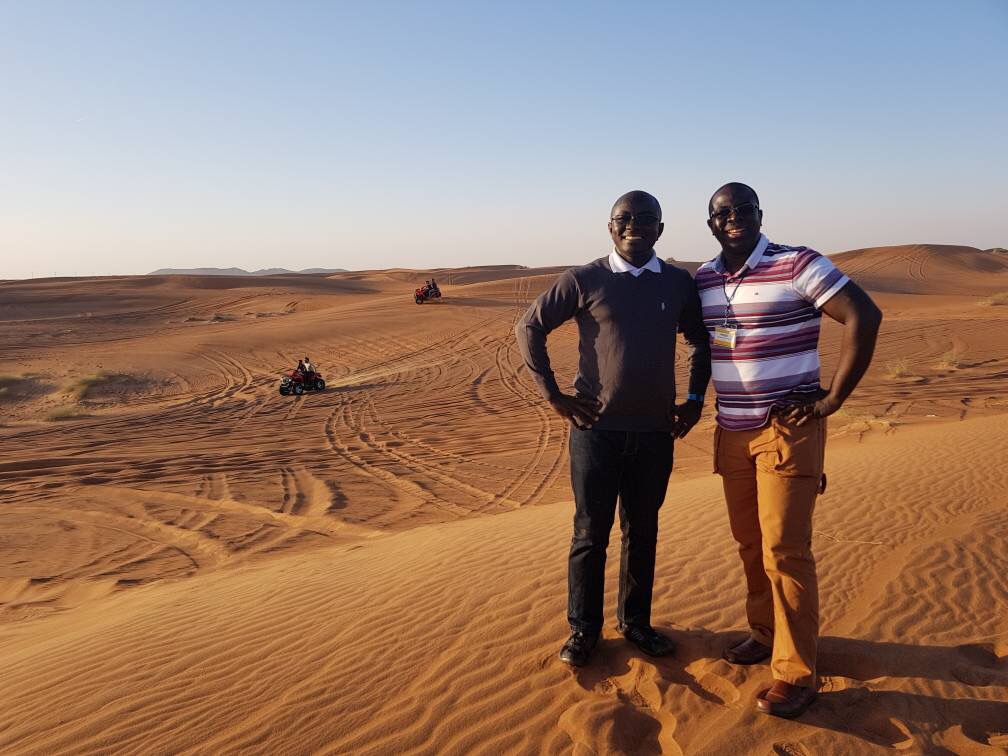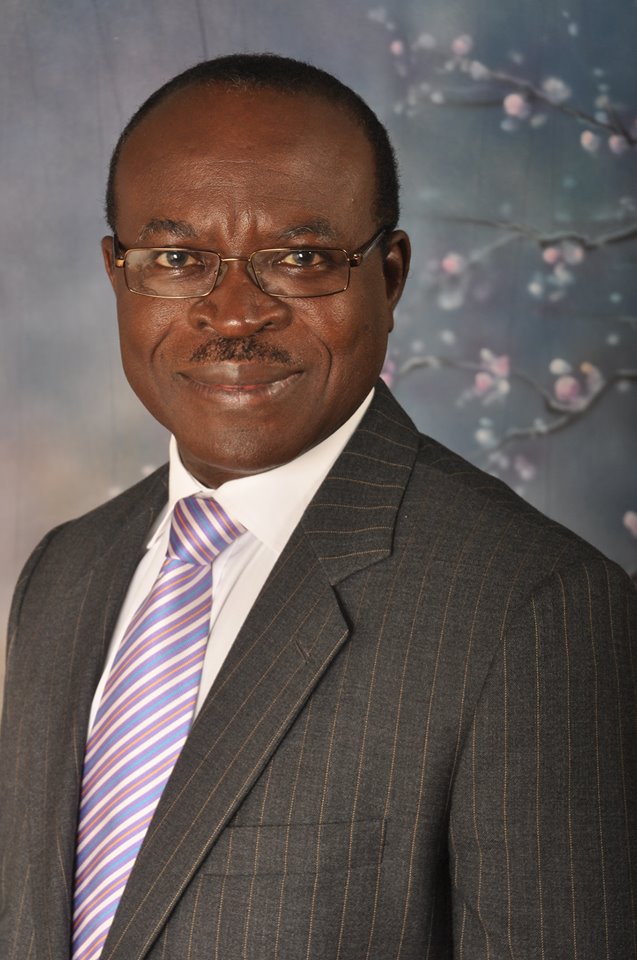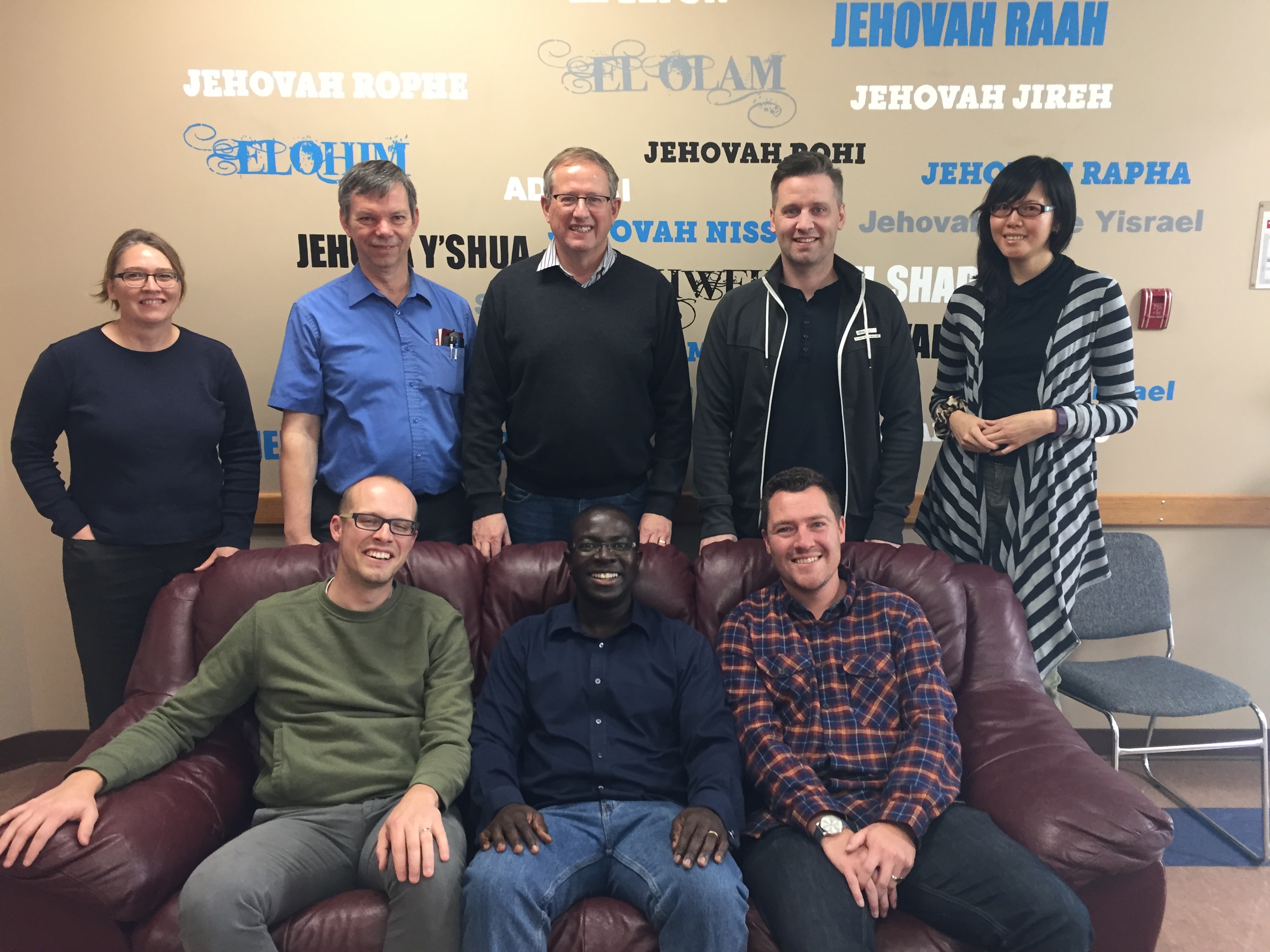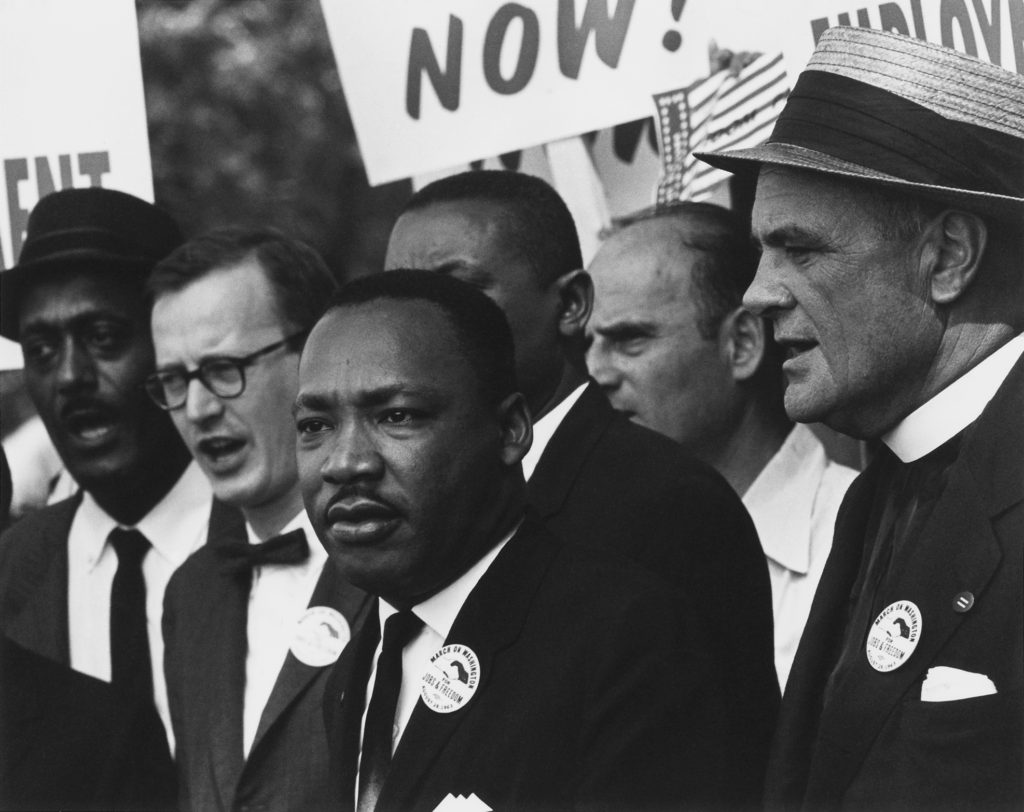You don’t know You if you don’t know God—and vice versa.
With all due respect, we are fooling ourselves if we think we can know ourselves without knowing God or know God without knowing ourselves. You can’t have one without the other. Here’s why.
“MAN, KNOW THYSELF”
We shall not even begin to delve into the convoluted Egyptian and Greek history that tries to explain the origins of the poignant phrase, “know thyself.” Suffice it to say that in leader development, many practitioners like me are in a hurry to get to exciting things like vision and mission and to teach skills like communication, team-building etc. but when we skip the essential task of helping people to first discover more of themselves, pay attention to themselves, there is imminent danger on an already treacherous leadership journey. “Man, know thyself,” said Socrates and apparently many other ancient Greek sages.
There are many reasons why self-awareness is important, like discovering the strengths and weaknesses of one’s personality (DISC, Enneagram or Myers Briggs as examples), uncovering how one’s ancestry affects their present attitudes, emotions and actions (using a genogram, for example), unveiling blind spots, discovering one’s giftedness (eg. using a StrengthsFinder assessment), exploring one’s cultural values (basic values survey) etc.
All that being said, it may astound you how knowing ourselves and knowing God are inextricably linked.
SIAMESE TWINS
I don’t know if using conjoint twins is the best analogy for illustrating this but Scripture, church history, current research and umpteen experiential anecdotes have proven beyond doubt that “a heart to know God more intimately requires an openness to discover oneself more truthfully” (Reese 2012, 57) and vice versa; also, that “true knowledge in the life of faith is always a “double knowledge.” We cannot know ourselves without knowing God or know God without knowing ourselves.
ANCIENT WORDS
Just check out what a few significant voices from the past have said about this double knowledge for nearly 2,000 years:
- Augustine (354-430): “Grant, Lord that I may know myself that I may know thee.”
- Bernard of Clairvaux (1090-1153): “Know yourself and you will have a wholesome fear of God. Know God and you will also love God. You must avoid both types of ignorance, because without fear and love, salvation is not possible. Without knowledge of self, we have no knowledge of God.”
- Julian of Norwich (c. 1342-c. 1416): “For our soul is so deeply grounded in God and so endlessly treasured that we cannot come to knowledge of it, until we first have knowledge of God, who is the Creator to whom it is united. …And all of this notwithstanding, we can never come to the full knowledge of God until we first clearly know our own soul.”
- Thomas à Kempis (c. 1380-1471): “a humble self-knowledge is a surer way to God than a search after deep learning.”
- John Calvin (1509-1564): “Our wisdom, in so far as it ought to be deemed true and solid wisdom, consists almost entirely of two parts: the knowledge of God and the knowledge of ourselves… The knowledge of God and the knowledge of ourselves are bound together by a mutual tie.”
- Blaise Pascal (1623-1622): “To know God and yet know nothing of our own wretched state breeds pride; to realize our misery and know nothing of God is mere despair; but if we come to the knowledge of Jesus Christ we find our true equilibrium, for there we find both human misery and God.”
PAY DOUBLE
No wonder the apostle Paul said to his mentee “pay close attention to yourself.” Of late I have staged a ‘rebellion’ against corporate leadership and the self-help/motivational industry because of the wanton decoupling of ‘religious life’ from reality. My frustration with church leadership also is when “these answers we know from Scripture” and “the questions we have in our life” are not really matching up well (Reese 2012, 60) and all this theology doesn’t seem to go anywhere or land in reality.
The most liberating thing for me in the final chapter of David G. Benner’s The Gift of Being Yourself is that “genuine Christ-following will always make us more, not less, human” (88). And I adore the Lord Jesus Christ for showing me the way: “By becoming fully human, Jesus leads us to the fulfillment of our humanity. By being fully God, he leads us to God” (88). Hallelujah!
As Benner puts it, “The anthropological question (Who am I?) and the theological question (Who is God?) are fundamentally inseparable” (83). I have become very, very, very, very wary of a multi-billion dollar self-help/motivational industry that has no place for God. Very. Or a musty theology that is not grounded in the reality of being human. Double knowledge, my friends. We’ve got to pay attention, twice.
Works Cited
Reese, Randy D., and Robert Loane. 2012. Deep Mentoring: Guiding Others on Their Leadership Journey. Downers Grove, IL: InterVarsity Press.
Benner David G. 2015. The Gift of Being Yourself. Downers Grove, IL: InterVarsity Press.
I DON’T CARE HOW GOOD YOU ARE (#2)~If you’re not a ‘walkie-talkie’
When “what people say, what people do, and what they say they do are entirely different things” (Margaret Mead) we’re in real trouble. On this Father’s Day, I want to honour the one person, of all the leaders I know in this world, who I can vouch for as walks his talk: my own father.
WHO SAID WHAT?
In my head I was debating whether or not to continue this “I Don’t Care How Good You Are” series on character, ethics, morality and integrity when I chanced upon an quote from the newly-launched book of a dear family friend (actually my Dad’s Best Man nearly 40 years ago!): “What a person truly believes isn’t what they think or say, it’s what they do” —Queenie in Lark Rise to Candleford. That was it; that was my confirmation to do this piece. So let’s roll with another in this character series. But this one is very special because it is dedicated to my own biological father.
In many places and pieces of literature, even in Scripture, the life we lead is often referred to as our “walk.” Let’s examine what it means when our talk (what we say we believe in, who say we are or what say we do) doesn’t match our walk.
WHY DAD?
If there ever was a man of integrity I could vouch for it is my father: Reindorf Kofi Baah Perbi. In fact, even way back in the 1980s during his days as Chief Accountant at the then Social Security Bank (now SG-SSB), when his signature was forged and monies stolen it was his integrity that saved him. Everyone vouched for him: “Chief would never do such a thing,” the convincingly told the authorities.
Those were the heady days of revolution and military rule in Ghana so he had even received a pre-judicial slap or two already when he was picked up by soldiers and sent to Gonja Barracks. After several weeks of tribunal hearings (and I remember us going to fetch him from tribunal hearings after we had been picked up from Ridge Church School), eventually, the perpetrators were found, tried and shot via firing squad. It was no joke. One of them, I believe, is still on the run—he must be still running now or dead from running.
When Dad retired as Ghana’s Deputy Senior Partner of KPMG (one of the ‘big four’ accounting firms in the world) in April 2015, it was humbling to hear how many of his accounting, management consulting, and audit colleagues honoured him for this one thing: integrity. I sat at those banquets (yes, there was more than one! Lol!) soliloquizing, “I want that. When all is said and done, that’s the kind of man I want to be!”
LAYING IT DOWN
Contrast Dad with Kenneth Lay, who was the CEO of Enron. He played a leading role in the corruption scandal that led to the downfall of the Enron Corporation. Unfortunately, Lay and Enron have become synonymous with corporate abuse and accounting fraud since the scandal broke in 2001.
In an interview with the indefatigable Larry King of CNN, after pleading not guilty to criminal counts having to do with his leadership at Enron, these were Mr. Lay’s words: “I lived my life in a certain way to make sure that I would never violate any law – certainly not criminal laws – and have always maintained that most important to me was my integrity, my character, and my values.”
Something doesn’t add up here because in 2004, Lay was indicted on 11 counts of securities fraud and related charges. He was found guilty on May 25, 2006, of 10 counts against him which meant he could face anything from 20 to 30 years in jail. However, only three-and-a-half months before sentencing, Kenneth Lay died of a heart attack while vacationing.
Same thing with Bernie Madoff who founded a Wall Street firm in 1960 of which he was chairman until his arrest on December 11, 2008. He would soon plead guilty to 11 felonies, having turned his wealth management business into a massive Ponzi scheme with almost $65 billion of fabricated gains. Yet hear his defense attorney, Daniel Horowitz: “…Bernard (Bernie) Madoff is a longstanding leader in the financial services industry. He will fight to get through this unfortunate set of events. He is a man of integrity.” Madoff is currently serving a life term in a federal prison for his kind of integrity.
STRANGE ANIMAL
Did you not just read Mr. Lay saying integrity was most important to him? In my short life, perhaps there is no word I’ve found more misunderstood and misappropriated than the word, “INTEGRITY.”
Integrity comes from the Latin root integritas, which means entire or whole. It’s the word from which we get “integer” in Mathematics. It may help to remember that integers are positive or negative whole numbers. To have integrity, therefore, means you are whole, you are one: your private and public lives are one; your charisma and character jive; what you say and what you do are in sync.
Extending the Math metaphor, a life of no integrity on the other hand is fractionated—instead of integers, we have fractions. That is when the Yaw you see behind the pulpit is different from the Yaw you see at the pub; and different from the Yaw you experienced on vacation in Panama; who is also very different from the Yaw at home… Sadly, not too long ago even a pastor whose public image did not match who he truly is was exposed on CNN.
THE ONLY TIME I BELIEVE IN ATHEISTS
When it comes to integrity, I dare say that many non-religious people, even atheists, have more integrity than many so-called religious people. This is what I mean. If Steve says, “I lie, I deceive, I steal.” Steve has low morality. When Yaw says, “I abhor lying, I don’t deceive, I never steal,” he has high morality.
BUT, if Yaw goes on lying, deceiving and stealing then Yaw is not a person of integrity. He doesn’t walk his talk. However, if Steve goes ahead to lie, deceive and steal, although he has low morality he actually is a person of integrity (albeit in a very twisted way) because he walks his talk. He said he will do these and he does.
The extent to which your walk and talk jive is the extent to which you are a person of integrity.
WANTED: WALKIE-TALKIES
I’m not perfect; none of us is. Many times I haven’t kept my word—including keeping appointments. It isn’t a perfect world either; stuff happens that alter our good intentions. One thing I do, however, is strive to call or email and apologize profusely, letting the person know I had every intention to keep my word but now very sorry I’m unable. The Psalmist David, takes this even a notch further saying a person of integrity is one who keeps his/her word, even when it hurts.
Integrity doesn’t mean you are perfect; but it sure means that when you ‘mess up’ you quickly and truly ‘fess up’. That is what made God call David, albeit an adulterer and a murder, a man of integrity (Psalm 78:72), even “a man after my own heart.”
I have observed with shock how people say things they don’t mean and mean what they don’t say; and say things they have no intention of ever acting on. Time wouldn’t allow me to go into my private disappointments in the lives of public speakers whose private lives don’t measure up to their public statements or images. And they have no qualms about it. The Lays and Madoffs did not just wake up one day and find themselves in court—a little slip, a little lie, and slowly slowly but surely surely down a slippery slope we go.
It doesn’t matter how good you are at what you do (skill, talent, gifting). If consistently what you say does not match what you do (walk), I shan’t hire you. Or if I do by mistake or because I want to give you a chance, you’re already on the firing line—it’s just a matter of time, if nothing changes. The world has billions of smart phones; what we need now is truly smart people. We need more walkie-talkies—people who walk their talk and talk their walk.
Thanks Dad, for showing me the way. Happy Father’s Day!
Corporate Leadership and Cross Leadership are not Synonymous!
There is a huge intersection between leadership principles in the corporate world and the church. But the former has its limits. It stops at the junction of the cross, if it isn’t willing to go that route of ‘cross leadership.’ Here’s how.
Note: the following write-up is adapted from an Integrative Paper of the works of Lingenfelter and Bosch (see ‘works cited’ below) submitted to my Fuller Seminary Masters in Global Leadership Class.
HOW IT ALL BEGAN
For years I’ve learnt, practised and taught corporate leadership principles, in a variety of fields from medicine through media to the military. So when Sherwood Lingenfelter respectfully acknowledged Banks and Ledbetter’s description of leadership and yet asserted that it is “inadequate for Christian ministry” he got my attention! Why would he say that?!
In fact, the exact quote is as follows: “Banks and Ledbetter go on to define the characteristics of leadership in terms of vision, setting direction, monitoring trends, and motivating and inspiring people to follow. Their insights are helpful as we seek to answer the question, what is leading? Yet secular and business perspectives on leadership are inadequate for Christian ministry” (Lingenfelter 2008, 16, emphasis mine).
Professors Lingenfelter and Bosch are both academicians with immense cross-cultural leadership praxis. Dr. Sherwood Lingenfelter, an American anthropologist is provost emeritus and senior professor at Fuller while Dr. David Bosch, who died in a fatal car accident in 1992, was a South African missiologist and professor at the University of South Africa.
Lingenfelter has a five-fold goal for his book (Lingenfelter 2008, 8-9) with the bottom line being the establishment of covenant relationships for effective cross-cultural leadership. Bosch seeks to define what spirituality is, particularly challenging the notion that it is ‘otherworldly’ rather than ‘on the road’ (Bosch 2001, 9-13), when really “being spiritual means being in Christ” (13).
WHY WE FIGHT AND FAIL–AND THE WAYS OUT
I briefly explain four key reasons Dr. Lingenfelter gives for the conflicts and failures people often face in ministering and leading cross-culturally. First, Lingenfelter argues that not only is building mutual trust within a united relational community the first characteristic of leading (Lingenfelter 2008, 16-17) but that “transformation of teams into covenant missional communities” (9) is a sine qua non. This comes before vision, strategies, goals or task-focused projects (167). A leader ought to prioritize the creation of a covenant community in which team members commit first to one another as people of God and then to working together as one on the mission of God (26). When this is not prime and proto, we set ourselves up for fights and failures in cross-cultural ministry and leadership for sure.
Forming this covenant community is crucial because as Bosch says of an ambassador, “he is a personal representative of his government, the very embodiment of the one who sends him” (Bosch, 43) so are we first and foremost the body of Christ. No doubt, “there are the problems of forced togetherness with incompatible personalities…” (44) yet at the same time “our relationships are then guided not by logic but by the illogic of love that flows from grace,” (Lingenfelter, 50) for how else shall we “be able to transmit these intimate experiences of the love and grace of God to other people in any other way than by walking this road with them”(Bosch, 69)?
Lingenfelter’s recommendation is that this covenant community is built through relational engagements which inspire the confidence and trust of team members, just like Jesus did (Lingenfelter, 17). Another great way to do this is through transformational worship (170).
Secondly, conflicts and failures of cross-cultural ministry and leadership arise as a result of conflict of values (Lingenfelter 2008, 69) since “all Christian leaders, regardless of their cultural background, carry their personal histories and cultural biases with them wherever they serve” (15) even if unbeknownst to them with unintended consequences of disobedience and ineffectiveness (9). The way out starts by humbly positioning oneself as a learner, to understand one’s own values as a culture-bearing person then investing time and resources to learn and understand the contrasting values of others on the team, and ultimately to learn how to add to one’s cultural repertoire to be effective in cross-cultural ministry (Lingenfelter, 7-8, 26). This is primarily achieved through dialogue, conversation after conversation (165-167). The good news is that “the Bible gives us principles for living that transcend both our human sinfulness and the prison of our culture” (9), the most pertinent and foundational for other values being Jesus’ expectation of those who want to follow him in the work of the kingdom to deny themselves and take up their cross daily first (48-49).
Thirdly, lack of or loss of a sense of vision and mission is another major problem (Lingenfelter, 164). For starters, “when the wonder of the kingdom of heaven” is not unfurled and clearly elucidated none will be “willing to leave everything and follow” (17). Even then in popular parlance, “vision leaks.” The solution? Repeated attention and intentional renewal of vision, mission and/or values (164). Even, “Paul’s spirituality was… renewed again and again from within” (Bosch, 20).
The final ‘thorn in the flesh’ of cross-cultural ministry and leadership is the issue of power. Since “…all people are inherently “power seekers,” …team relationships will be fraught with struggles for power and control” (Lingenfelter, 26). The way out is biblically based, Christ-centered, power-giving leadership (9) which is quite content to be rejected and discredited as “unknown men” (Bosch, 20), vulnerable (65) and has “the courage to be weak” (75), “…living in a gentle tension between giving ourselves in full surrender to our fellowman, yet at the same time enjoying the peace of the Lord” (23).
THE NUMBER ONE CURE
The prime solution, which cuts across all the array of cross-cultural ministry and leadership problems and failures, is the cross, “the defining metaphor for leadership given by the Lord Jesus Christ” (Lingenfelter, 168). Bosch concurs, with his “third way” assertion (15); albeit not a “domesticated cross with a handle” (32). This means denying ourselves and sacrificing some significant aspect of our ministry, for our brothers and sisters (Lingenfelter, 169). Here, the act of taking to time to worship God at the cross and surrender (170), especially in the midst of debriefs (88), makes it all happen.
The first issue of intentionally building covenant communities really struck a cord with me. The weakest thing I saw (and it had even been researched and documented) coming into my new role at International Student Ministries Canada four years ago was an absence of strong leadership that cast clear vision for the mission and the wider body of Christ. Having been gifted in this area I came on with full force doing just that, only to find resistance in some quarters all the way to mistrust in others. Although I did a fair bit to relate to and consult with as many staff as possible I now know it was not only enough, but may have even been perceived as just a means to my real end—vision—not relationship for its own sake.
Now from Lingenfelter I know better, that even before vision comes a full-on covenant commitment to nurture covenant community. That is my number one job as President of this strategic cross-cultural mission, and I am more intentionally pursuing that with my national senior leadership team first. I particularly would want us to make worship at the cross central in this pursuit of an effectual, united, covenant community of mutual trust.
True, there is a huge intersection between leadership principles in the corporate world and the church. But the former has its limits, especially if we are to effectually lead cross-culturally. It stutters and stops at the junction of the Cross, because more often than not corporate leadership is not only unwilling but even unable to go that route of ‘cross leadership:’ the vision of the cross, the way of the cross, the attitude of the cross. It is a that to take up Christian leadership is to take up one’s cross.
Works cited
Lingenfelter, Sherwood. 2008. Leading Cross-Culturally. Grand Rapids, MI: Baker.
Bosch, David J. 2001. A Spirituality of the Road. Eugene, OR: Wipf & Stock.
IN LOVE WITH ANOTHER WOMAN
What if it’s really NOT “a man’s world” as much as we think and neither is God a He?
This is the morning after. I woke up yestermorning in love another woman. And I didn’t even realise till much later after sunrise when both people and birds alike began to tweet that the day was special: International Women’s Day (IWD). Just as well!
In my readings that morning—which had nothing to do with IWD but an attempt at chipping away at some assignment from my Master’s programme—I was impressed by Deborah. I fell in love with her. For those who think multi-tasking and role conflict is a (post)modern phenomenon, think again. Debbie was leading Israel as a prophet, a wife, and a judge (she reminds me so much of Ghana’s first and only female Chief Justice—ayekoo, Auntie Georgina! another mother of mine). By the way, those who use the Jewish Bible to veto women’s right and female leadership might need to be reminded that those same Jewish people in the 1960s elected a woman, Golda Meir, as their fourth prime minister. Incidentally, there’s something about March and women—she was elected on March 17, 1969, after serving as Minister of Labour and Foreign Minister. A feat the United States of America wouldn’t, or rather couldn’t, do with Hillary Clinton in 2016.
But I digress. Back to the woman I fell in love with yesterday, Debora. Not only were the masses going up to her to have their disputes decided, when she would send for prominent men like Barak (not Obama—but could very well be if she were living today), they would show up and she will command them what to do (I can see some men squirming already).
WHEN A MAN ___ A WOMAN
What did you fill in the gap with? Did you say, “When a man loves a woman”? If you did, I’m not surprised. There’s hardly a romantic song more popular than that Michael Bolton hit yet as I read about my newfound love this International Women’s Day I wondered why When a Man NEEDS a woman is not sung much? I don’t know if anyone has put a tune to lyrics like that (educate me!) but the Barak fella I was telling you about, wouldn’t even go into battle without Deborah! She was that powerful.
Despite a clear instruction from God to the warrior, hear his plea to Deborah: “If you go with me I will go, but if you don’t go with me, I won’t go.” Although “When a loves a woman” seems to be such a complimentary song to the fairer sex, I dare say, “When a man needs a woman” would be even more honouring. Especially, when it has nothing to do with romantic butterflies in the stomach! Surely, there’s more to a woman that eros? Was Barak a weak man or a wise man? We’ll soon find out.
GOD TOO?
I have a thing for women. And it seems I’m in good company. God too. Time and space won’t allow me to run through all the ways women are honoured throughout Scripture but what if I told you God was a She?
During IWD I had thought of throwing a social media challenge to dare all my friends to refer to God as She yesterday, only yesterday, to see their reaction. Maybe another day, DV. The first time I heard someone refer to God as ‘She’ I fumed! There must have been smoke coming out of my ears and nostrils! But stop to think about it for a moment.
Incidentally, while I was tossing and turning this thought about in my mind I received the latest publication of a Jewish organisation whose board I serve on with the same issue being addressed. Rich Robinson began his Jews and Gender article by sharing a jabbing story.
“I took a class in theology once, the kind where the professor had an exotic (to an American) Scottish brogue and brought a unique viewpoint to nearly everything. The day came when someone asked him, “Why is God always described as ‘he’ in the Bible? Why isn’t God ‘she’? How come God isn’t female?”
The Professor thought for a moment and then gave a succinct two-word answer: “He is.”
Wow! It is true that while more often than not God is typically depicted in masculine terms (father, king, warrior, bridegroom) there are also several places in Scripture where God refers to Himself in female terms. For example, “As one whom his mother comforts, so I will comfort you…” (Isaiah 66:13). How about this one, “Can a woman forget her nursing child, that she should have no compassion on the son of her womb? Even these may forget, yet I will not forget you…” (Isaiah 49:15-16).
Sometimes you have God as both father and mother in the same breath, like “You were unmindful of the Rock that fathered you, and you forgot the God who gave you birth [mothered].” (Deuteronomy 32:18) Another masculine and feminine imagery of God together in the same space is this: “The LORD goes out like a mighty man, like a man of war he stirs up his zeal, he shows himself mighty against his foes. For a long time I have held my peace; I have kept still and restrained myself; now I will cry out like a woman in labor; I will gasp and pant” (Isaiah 42:13-14). I will suggest you read Robinson’s the full article here. It just might shift something in you.
While (post)modern feminists, fundamentalists and theologians debate these gender issues, I find it interesting that my dear (and only) wife’s tribe in Ghana, West Africa, the Ga people, have for ages rightly referred to the Almighty as “Ataa Naa Nyomo,” Ataa (male) and Naa (female). Translated, “Father-Mother God.” Ironically, Prof. Mercy Oduyoye states, “The older understanding of God as both male and female…has been lost in modernity.”
SO GOD IS A WOMAN?
So is God a man or woman? Is He bisexual? Or is He all the 58 genders on Facebook (I bet you didn’t know that!)? Two things: First, God is God. He is beyond gender. But secondly, God created mankind is in His own image—male and female. It takes both genders to properly display God’s full image and glory. One gender is woefully inadequate to express God’s image; just as one race is grievously insufficient to display His full picture.There are strengths male men have
As with all personalities and groupalities, when it comes to gender as well there are strengths that male men have that female men don’t and vice versa. When we get into the fights about who’s better or weaker, we miss the point. Some people’s left hand is weaker or less dextrous than their right; for others (like my mother and sister), it’s the opposite. But all of us will agree that we’re better off with both. And o, even to be ambidextrous!
MAN ENOUGH; GOD ENOUGH
Today, I honour all the women in my life for making me a fuller man—my wife, my sisters, mentors, mates, mentees and co-workers. As for my mother, I wouldn’t even be a man at all—not even born in the first place—but for her. Every man came from a womb-man. And for those women who are still underpaid, be assured, the day will come when those who undermine you will be payed back their due and more.
I am man enough to say I need a woman. And you? Are you woman enough to say when you need a man? As for God, don’t worry about Him. He is God enough to stomach all our gender nonsense. Again you ask, “Is God a female?” “He is.”
Of Noble Dreams and “Shitty Stories”
Anybody who knows me well will tell you that the use of such a vulgar slang like “shitty” is uncharacteristic of me. This week many joined Americans to celebrate Martin Luther King Jnr. Day. While great progress has been made regarding race relations in North America we still have a long way to go. Some white officer just showed me so!
SPEAK NO EVIL
Once I went all the way to defend myself in a court of law in another province of Canada, a three-hour flight from home, because I felt the police officer who had stopped me months prior was prejudiced because I was black. Even three-and-a-half years ago when I became the first black president (and only black staff at the time) of a predominantly middle-age, white Canadian organization someone came to inform me about one unhappy staff who was wondering, “Why did they [the board] bring this African here to lead us?” I could write a whole book on times I’ve felt ill-treated just because of the colour of my skin.
However, I try to avoid writing on racial tensions, in particular black/white issues, for a number of reasons (which I shan’t enumerate here); but like us all, when it really hits close to home we bury our ‘political correctness’ and as Nike says, “just do it.” As a black man living in North America, I have faced covet and overt discrimination—including being hooted at in a restaurant in southern Ontario by a white woman who I bet hadn’t ever left her province before let alone seeing the rest of the world—but none has gotten to me like the one last Friday. And it’s hard to forget because it was the infamous Friday the thirteenth (13/01/2017).
BLUE AND GREEN
My wife is the Chief Operating Officer of Adeshe Real Estate. As I’ve shared before, we believe in investing in assets towards financial freedom. Because she wanted to check on a property she recently purchased in Champlain, NY (the last major town in upstate New York before crossing the border into Quebec, Canada) last Friday we all decided as a family to go along with her just for the ride.
Out of my own stubbornness (that’s another subject for another day) I have not picked up Canadian citizenship or passport so whenever we travel it is a very interesting array of five blue Canadian passports and one green Ghanaian one—mine. As a result, usually I’m the one who delays the rest of the family at the border because I’m often asked to go into the U.S. Customs and Border Protection (CBD) building to receive an I-94 form to enter the States. This time, I was quite exhilarated that this wouldn’t be necessary because I had kept by last I-94 form intact in my passport since I got it last July six months prior. In fact, it was due to expire the next day (January 14) and so I planned to leave it with the Canadian border authorities upon our return from Champlain before re-entering Canada. Nothing could’ve prepared me for what was about to happen in Obama’s America.
BLACK AND WHITE
Had I known what was about to transpire I might not have changed from the lane of cars I originally was in. There weren’t too many cars at the border so barely two minutes after I switched lanes we got to pull our grey Dodge Caravan, laden with the Perbilets, to the window of Officer Robert.
After the initial pleasantries I handed him the deck of passports as he asked, “Where are you headed?”
“Just over to Champlain,” I confidently responded.
“What for?” he continued his inquiry.
“To check out a property we purchased over there?” I replied.
And that is when he lost it… This young, white kid (probably 20 or 21 years of age) then says, “THAT IS SUCH A SHITTY STORY!”
“What? Excuse me?” I retorted in disbelief. “Did you say “Shitty Story?”
Officer Robert not only had no remorse but in addition, decided to ask us to proceed into the building I was hoping I could avoid a waste of time in.
“Why do we need to do that?” I insisted, “since I have a valid I-94?”
The young man in his white prejudice had either been blinded to that fact or couldn’t care less.
“Too bad, you still have to go because I’ve already punched it in the system that you’re heading there.”
I expressed by utter disgust at his unprofessionalism and promised I would report him to his supervisor. Again, he couldn’t be bothered.
STUPIDITY, LIKE SUCCESS, HAS NO COLOUR
So we dragged ourselves in our annoyance—a family of six, with four children bundled in cumbersome winter jackets, hats and stuff—into the building. My wife Anyele was fuming; going gaga! And she had every right to.
The officer who received our documents inside wondered why on earth we had been asked to come and see her when I had a valid I-94—and even planned to return to Canada not just the same day, but even in less than an hour’s time! She just handed our passports back to me and asked us to proceed but I wouldn’t let this slip by without a fight. I told her I wanted to see their supervisor.
When I did launch my complaint against Officer Robert—from his rude attitude through to his uncouth, vulgar “shitty story” statement to his incompetence (can’t even read a date!) in sending us into the building—she casually apologized and said she would have a conversation with the young man but I noticed what really got her taking me very seriously was when I said, “I’m going to put this on FaceBook.”
She made a copy of my passport and handed me a formal complaint sheet to fill and submit. They’ll be receiving it soon, DV.
RED & WHITE STRIPES
I have travelled to some 30 countries and sometimes met with some very annoying circumstances but honestly I have never felt more disrespected at an international border. The last place I would think would be Obama’s America.

President Obama with background of broad red and white stripes of U.S. flag (credit: keywordsuggest.org)
So, half a century after Martin Luther King’s civil rights fights and significant progress made—to the extent that eight years ago we saw a black man occupy the White house—the evil of racial prejudice and discrimination still has deep roots in the United States of America. At least I wasn’t shot at like others unfortunately have, leaving Anyele a widow with four fatherless children.
I have heard and read of many glamourous and well-known bright, black stars in the land of Red and White Stripes that have been very badly treated because of their skin colour; in spite of their glory and fame. Even some maintain that President Obama himself, by virtue of his black heritage, has been, arguably, the most disrespected sitting U.S. President till date.
Many were surprised when the Republican Party’s only African-American senator, South Carolina’s Tim Scott, told the U.S. Congress last year that since he came into office, he had been stopped seven times by police in a single year.
Scott said that one of his black staffers in Washington, D.C., got so tired of being pulled over in his nice car that he sold it.
“Imagine the frustration, the irritation, the loss of dignity that accompanies each of those stops?” he said.
“While I thank God that I have not endured bodily harm, I have however felt the pressure applied by the scales of justice when they are slanted,” he said.
“I have felt the anger, the frustration, the sadness and the humiliation that comes with feeling like you’re being targeted for nothing more than being just yourself,” he added.
In fact, in this CNN video clip he admits that while he was rightly accosted sometimes because he was in the wrong–speeding–he laments, “But the vast majority of the time I was pulled over for nothing more than driving a new car in the wrong neighbourhood or some other reason just as trivial.”
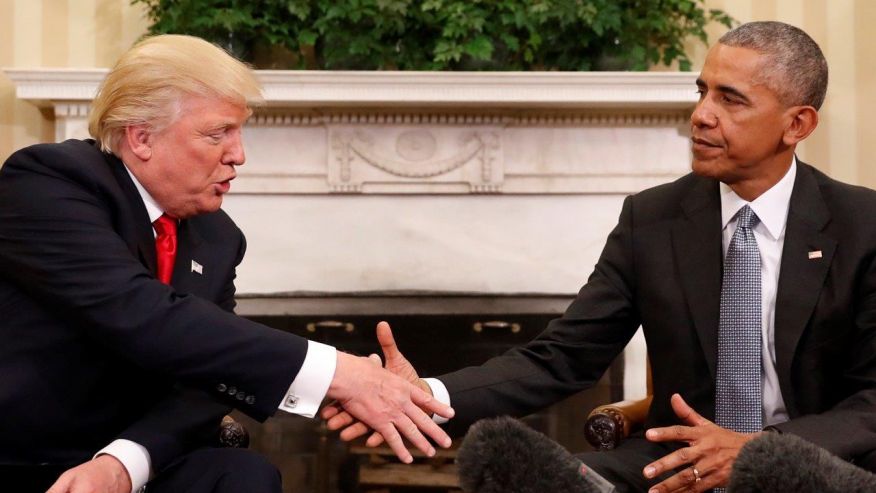
President-elect Donald Trump and sitting US President Barak Obama during the transition period (credit: shadowandact.com)
DREAM OR NIGHTMARE?
This week is historic in America. The same week that began with a Monday on which Martin Luther King Jnr. is celebrated, closes on a Friday when the first and only black president leaves the Oval office for a white one who many fear isn’t exactly colour-blind. We, my family and I, were living our dream of being international investors, a reality some white officer thought was so incredulous for a black family with an accent to live in—a “shitty story,” even in the year 2017 in “the land of the free and the home of the brave.”
As Obama gives way to Trump will Martin Luther King’s dream, “… that my four little children will one day live in a nation where they will not be judged by the color of their skin, but by the content of their character” remain a dream, become a reality or even morph into a nightmare? We watch and pray.
Why God hasn’t killed Obinim…yet!
You don’t have to be well-versed in the Bible to know this self-styled ‘Bishop’ is a false prophet; so why the heck is he allowed to operate freely and with such audacity… and for so long?
TRUE OR FALSE?
The day I got on the same flight with ‘Bishop’ Daniel Obinim, O how I prayed! Neither the huge, blazing white 4×4 he was chauffeured to the Kumasi airport in nor his skimpy suit impressed me. His obviously bleached countenance was striking yet not even that occupied my mind like this doomsday thought: “is today the day?”
In the first place, I was wondering why on earth this Founder and General Overseer of International God’s Way Church did not just turn into a bird and make the short 45-minute flight to Accra since he claims he has the ability to turn into other creatures. Apparently he can turn into a lion, dog or snake and bite people to death on spiritual visits or siphon money from people and places (banks beware!). Perhaps he hasn’t upgraded to the avian realm yet—I don’t know and I don’t care—but clearly the ‘Bishop’ needed a lift that day. But why today of all days?
LITMUS TEST
You don’t have to be well-versed in the Bible to know this ‘Bishop’ is a false prophet. Don’t let the things money or marketing can buy fool you. “The Spirit clearly says that in later times some will abandon the faith and follow deceiving spirits and things taught by demons. Such teachings come through hypocritical liars, whose consciences have been seared as with a hot iron.” (1 Timothy 4:1-2, emphasis mine)
Jesus Christ shows us the way to tell who’s true and whose not. First He warns us: “Watch out for false prophets. They come to you in sheep’s clothing, but inwardly they are ferocious wolves.” (Matthew 7:15) Then he gives us the litmus test twice in a space of five verses: “By their fruit you will recognize them. (vs. 16 and 20)
Doctrine is important in telling who’s a real ‘man of God’ and who isn’t but ultimate test is fruit—their character and consequence of their lives. Things like their speech seasoned with salt, their love, patience, goodness, faithfulness, gentleness, self-control. Let me not go into the litany of Obinim’s character issues, from slander to sex. By the way, according to him, his adultery with one of his junior pastors’ wife was meant to be a sign to his followers that he is human and not as divine as perceived by them.
Forget the miracles. Not all miracles are done by the Spirit of the Living God. Ask Moses and he’ll tell you about Jannes and Jambres, the famous magicians of Pharoah. “Aaron threw his staff down in front of Pharaoh and his officials, and it became a snake. Pharaoh then summoned wise men and sorcerers, and the Egyptian magicians also did the same things by their secret arts: Each one threw down his staff and it became a snake. But Aaron’s staff swallowed up their staffs.” (Exodus 7:10-12). Later, these same sorcerers duplicated the changing of water into blood (7:22) and the production of frogs (8:7). However, the sorcerers were powerless to duplicate the other plagues (8:19).
You may recall that God gave Pharaoh and his magicians—and indeed all of Egypt—a very long rope. They had nine opportunities (you may call them ‘plagues’) to change their minds and their ways. Eventually by the tenth they did—but only when it was rather late. So much and so many had already been destroyed.
Feeling so annoyed and vindictive that July afternoon I was wondering: is today the day God is finally going to finish off Obinim? Would he have come to the end of the rope by the end of this runway? Oh, and my prayer was not so much for him but for me—that this wasn’t the day, time or the means by which God was going to bring Daniel Obinim to book because I would end up as “collateral damage.”
THE GOD WHO IS WEAK AND SLOW
So why hasn’t God killed Obinim…yet? First, for God’s sake. I’ve learnt a cardinal lesson from searching the scriptures this year that has shocked me, to say the least. It hasn’t been so much the fact that God wants His glory to be seen among all peoples, for his fame and name to be spread to all nations and throughout all generations per se. What I’ve found shocking is what He wants most to be known for—something my judgmental and vindictive self considers rather weak and unimpressive!
In Exodus 33:18-34:8, God told Moses He would proclaim His “name” before him. Then He proceeds to list some phrases or ideas (especially Exodus 34:6-7) which reveal that for which God wants to be “famous”:
- “The compassionate and gracious God”
- “Slow to anger”
- “Abounding in love and faithfulness”
- “Maintaining love to thousands”
- “Forgiving wickedness, rebellion and sin”
- “Yet he does not leave the guilty unpunished.”
Ah! This is the very opposite of how the gods in my hometown and many other regions of the world are regarded. They are seen as powerful, hard to appease and delivering such instant justice that people who feel aggrieved would rather go and consult them than leave their ‘enemies’ to this seemingly slow and suspiciously weak God of Abraham.
In fact, these descriptive phrases of the nature of the Living God also appear later in Numbers 14:15-19, in which Moses prayed with respect—when God was really angry with the Israelites for their rebellion and grumbling regarding the Promised Land—reminding Him, so-to-speak, of how He wanted to be known among the nations.
Make no mistake, the Lord was angry, very angry. “How long will these people treat me with contempt? He said. “How long will they refuse to believe in me, in spite of all the signs I have performed among them? I will strike them down with a plague and destroy them…” (Ex. 14:11-12). Moses succeeded in assuaging God’s anger by reminding Him of His fame that Egypt and the rest of the world had heard about and challenged Him to display His strength and power. What is that strength and power? “Now may the Lord’s strength be displayed, just as you have declared: ‘The Lord is slow to anger, abounding in love and forgiving sin and rebellion. Yet he does not leave the guilty unpunished; he punishes the children for the sin of the parents to the third and fourth generation.’ In accordance with your great love, forgive the sin of these people…” (Numbers 14:18-19, NIV). God relented; God forgave; Moses succeeded.
TO GIVE OR NOT TO GIVE?
So why hasn’t God killed Daniel Obinim…yet? Secondly, for Obinim’s sake. God gives a long rope, a very long rope, but not forever. Contrary to what many think of God as never giving up, God does give up and give over (Romans 1:24,26, 28; Acts 7:42; Psalm 81:12) but He is very, very, very, so very patient with us. “The Lord is not slow in keeping his promise, as some understand slowness. Instead he is patient with you, not wanting anyone to perish, but everyone to come to repentance.” (2 Peter 3:9) And when we finally give in, when we say we have done a 180, there must be fruit to show—proof by the way we live that we have truly repented of our ways and turned to God.
BEAUTY AND THE BASTARD
Two weekends ago I got off the phone with a cocktail of emotions, mainly deep anger. No, not at the suicidal university graduate full of potential yet now struggling to keep her own body and soul together plus that of her new-born bastard but at the so-called pastor, supposedly married, who put her in that situation.
I did not even realize September 10, the day we spoke on phone, was world anti-suicide day; but that lady had just narrowly escaped suicide the night before by chancing upon one of my blogs. She decided to hold off, hold on and gathered the courage to give me a call.
Self-styled pastors, prophets and bishops like Obinim who apparently are accountable to no one and do whatever they like ‘in the name of the LORD’ seem to get away with it…for now. Now you know why.
Before the flight would land, this beautiful, fair-coloured lady sitting directly behind Obinim and his aide-de-camp reaches out to the latter and asks for the ‘Bishop’s’ number. From where I sit I can see the grin on Obinim’s face as he nods in approval for the contact to be given. Business is booming, judgment can wait; here comes another victim.
It struck me to the core when someone made a very poignant quote: “when others are in the wrong we demand justice but when we are wrong we seek mercy.” How profoundly true! Now you know why God hasn’t killed Obinim…yet—it’s the same reason He hasn’t finished off you and me.

